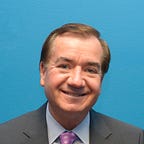Photos: The Middle East & North Africa
Last week, I led a bipartisan delegation to Jordan, Iraq, and Tunisia to meet with our partners in the fight against ISIS. Our discussions with local officials, military leaders, human rights activists and American personnel serving on the ground focused on efforts to defeat these terrorists militarily and ideologically.
Here a few highlights:
Amman, Jordan. In meetings with government officials — including Prime Minister Abdulla Nsour — we talked about Jordan’s stabilizing role in the Middle East, and its important contributions to the coalition fighting ISIS. Later, we caught up with American service members from California participating in joint training with the Jordanian military.
Baghdad, Iraq. After a short flight to Baghdad, we made our way to the Iraq Museum for meetings and a press conference focused on the need to stop ISIS’s destruction and trafficking of priceless antiquities. Then, we were off to the Green Zone for lunch with American troops and including sit downs with Prime Minister Abadi and Sunni tribal leaders.
Erbil, Iraq. In northern Iraq, we had a chance to observe coalition training of the Kurdish forces — including a squad of female fighters. Kurdish forces have proven to be some of the most effective troops in the fight against ISIS, even though their decades-old weapons often leave them desperately outgunned.
This is a suicide vehicle captured by Kurdish forces. They call it the “Mad Max” vehicle. Seven were driven into Kurdish lines. Scores were killed as the drives detonated explosives in the pickup bed. They managed to stop this eighth truck with a lucky shot through a small window along the back. (This is just one of the reasons I led the House Foreign Affairs Committee in approving legislation to provide Kurdish forces with the weapons they need. They shouldn’t have to rely on luck in the face of ISIS depravity. America needs to step up.)
Later, we stopped at St. Elias Church to meet with Archbisop Warda, Father Al-Bazi and Christian families who’ve been driven from their homes by ISIS. More than 100 families are living in make-shift quarters on the church grounds. And I was glad I could tell them that the United States is finally calling ISIS atrocities against religious minorities — including Christians and Yazidis — what they are: genocide.
Tunis, Tunisia. In Tunis, our first stop was the North Africa American Cemetery, where we laid a wreath to honor the thousands of U.S. troops who gave their lives to defeat the Nazi’s in North Africa in WWII. Then we were off to meetings with the Prime Minister, President, and Members of Parliament. Tunisia represents so much hope for democracy and peace and security in the Arab world, and it’s facing a great amount of pressure from ISIS and the situation in neighboring Libya.
I really enjoyed the opportunity to offer my encouragement to fellow legislators to keep working at reforms to encourage entrepreneurism, free markets, and greater security.
Before heading to the airport for home, we stopped by the Bardo museum, to pay respects to the 22 people who were murdered in an ISIS attack last year.
It was a good reminder that we cannot, and will not, let these terrorists continue to export death and destruction around the world.
